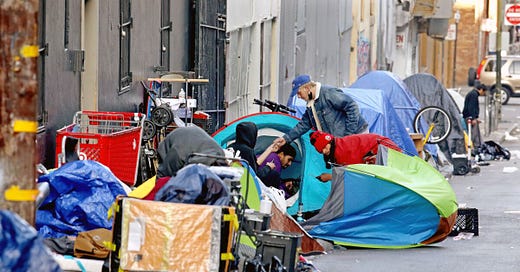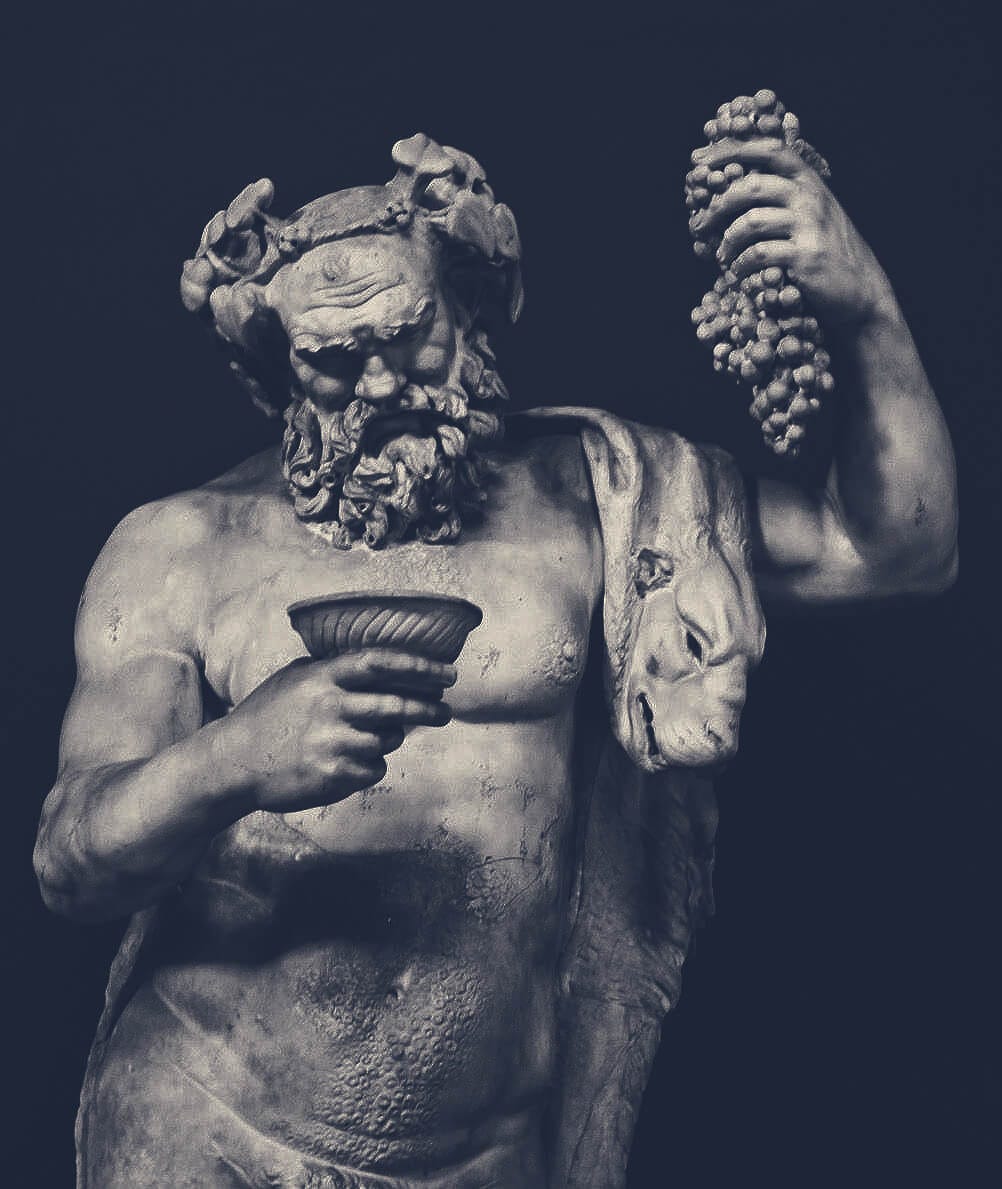Unrestrained freedom to do as they wish…
It’s hard to look at the broken bodies of the addicted. The scars on their arms and legs from needle sticks and suicide attempts, the surgical wounds from injuries or infections. These are tragic hieroglyphics that record painful epics. They speak long, sorrowful tales of hard lives that led to addiction, or hard lives that came from it. Usually both.
We see them brought to the ER door by ambulance. Sometimes by friends or fellow users, their cars screeching up, frantic voices crying for help. The victims’ lips blue, eyes blank, as we push in the Narcan, place the lines and tubes or start CPR.
Sometimes we watch for that first breath after the medications are pushed, the oxygen placed (“come on, come on, breathe!”) and it can seem like forever. Then the gasp, and the cry, and all too often, the anger as they wake up and storm out, robbed of the euphoria that Bacchus brought, not in wine and feasting but in needles delivering fentanyl or heroin.
Sometimes it was too long. Sometimes there is no gasp. No pulse. Only the cry of someone who cares.
Worse, sometimes there is nobody. I recall once that a family member was called and told of an overdose death in a long-time addict. On the other line, one word.
“Good.”
Then the phone went silent.
It’s equally hard to see the swollen bellies, the yellow, vacant eyes of the end-stage alcoholic. The dark blood that they vomit up. It’s difficult to watch them as they go in and out of confusion while their livers steadily die and their families’ hopes die too. Bacchus tips a cup to them, rather than a needle.
There are the psychotic as well, those who have lost all touch with reality, who have lost the very ability to process thoughts clearly. Talk to a long time methamphetamine user and you’ll see how terribly lost they are. Their minds savaged by the use of stimulants like methamphetamine or constant use of hallucinogens like marijuana (which seems to be seen more and more as merely a benign hobby rather than a life-altering problem).
They are confused. Underlying mental illness comes in through the open door of their drugs; or the drugs create mental illness. They are often homeless and they wander the streets, in and out of ERs and psychiatric units and the homes of family, friends… or dangerous strangers.
Bacchus lights a pipe and a bowl with them. At first they feel so good. Later they become empty shells as he laughs at what the search for escape brought them. It certainly wasn’t profound clarity.
We have come to believe that our unfettered use of substances has no price. Drugs and alcohol are simply how we live; only Puritans would try to stop the fun! Indeed, there are those who use both without devastation. But the risk is always there. And the cost is high. That price can vary, from a hangover to loss of job, loss of family, or even violent crime (as perpetrator or victim).
Bacchus is an old god. His influence on mankind is hardly new. But the modern Bacchanalia is not the classical ancient image. Hey, maybe it never was.
Now it may be celebrated at the party that begins with alcohol and ends with aspiration and death. Many times it seems to occur, not in lavish, garlanded courtyards but in underpasses, or cardboard boxes in homeless encampments. It occurs in the back-seat of lonely cars in side-streets.
If one isn’t careful, this can sound like just another old-fashioned sermon on morality. Certainly that’s the kind of sermon I grew up hearing. The kind of morality I learned as a child and teen. Morality for morality’s sake.
Later, I saw more and more suffering. In time my understanding increased and my compassion grew and my father’s heart was broken (for every patient we see is someone’s child). And my theology grew as well. Maybe God repaired my old, stiff heart.
Ezekiel 36:26
“I will give you a new heart and put a new spirit in you; I will remove from you your heart of stone and give you a heart of flesh.”
Now I think that the morality we need to seek, and to teach, is about survival. I believe this is what it has been meant to teach us from the very start. The Logos from eternity speaking to us: “Listen…and LIVE! Live now, live forever. Live in the fullest sense of the word!”
The idea of the Bacchanalia, that we can do whatever we want, is a deception because it says “whatever you do is fine, as long as you decide to do it, and it’s nobody else’s business as long as you’re having fun...and not hurting anyone.”
But hurting other people is not so clearly defined. And it is our business. Our business to reduce the burden of suffering, direct and indirect. To save city and country. To save civilization. And to do it by saying to individuals, “the way you are living will kill you and harm others. You and I are worth more than all of this. We are all of great value.”
We have to guide the wayward, to heal the broken, to turn people way from the cliff of their chosen means of self-destruction. We have to protect the innocent and defenseless. It is a lazy, heartless apathy that says, “whatever you want to do to your own body is fine.” Especially when that thing they do may prove fatal.
We are to offer life instead of death. Thriving instead of struggle.
The Bacchanalia is an illusion, a delusion, a hallucination, a fever dream.
Bacchus, in all his iterations and incarnations, is a liar and a thief.
And from my standpoint, nothing more than a common killer. I’ve seen his work.
But what to do? Maybe accept once more that religious experience and spiritual ecstasy is better than that provided by chemicals. Thousands of years of wisdom better than every newly assembled collection of carbon atoms and side-chains.
We can learn to see addiction for what it is; so often an escape from pain. The addicted not so much “druggies” as I often heard them called as a child. The addicted may well be seen as slaves in need of redemption.
Let the good gods, the bright gods, the great God give Bacchus his papers and send him on his way. Let him be cast into a herd of pigs, or a vineyard; maybe into fields of opium.
Generations already addicted and struggling are hard to reach. Their diseases are deeply wrapped in and around every aspect of their lives, deep roots in hard, Southern summer, red clay earth,. But we can at least reach younger generations. In particular our own children, our own grandchildren, our own nephews and nieces and cousins.
Counselors talk of generational trauma.
Christians talk of generational curses.
Either way they can be broken with candor and love. But not with that exhausting line I’ve heard so many times. “I mean, who am I to tell the kids not to drink or do drugs? I did them when I was their age!”
Who are you? You are the parent who managed to survive and saw the devastation along the way. Or at least who knows that may yet come. Break the cycle. Break the trauma.
Smash the curse.
The Bacchanalia has brought us more pain than we can imagine. It won’t stop yet. But there’s no reason we can’t fight the great deceiver of humanity and knock that infernal cup from his hand.
And in so doing, hopefully, some of the dying can actually start to live.





This hits hard and exact. So much of my own life and work has brushed against addiction and as I read your words I realize how much I have trained myself into apathy. I needed my fires lit. Thank you.
Kudos for pointing out Bacchus’s true identity. He’s not some old good timer to nod and wink at. The wages of sin is death.